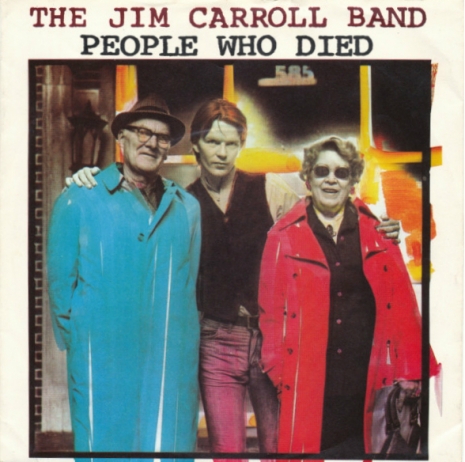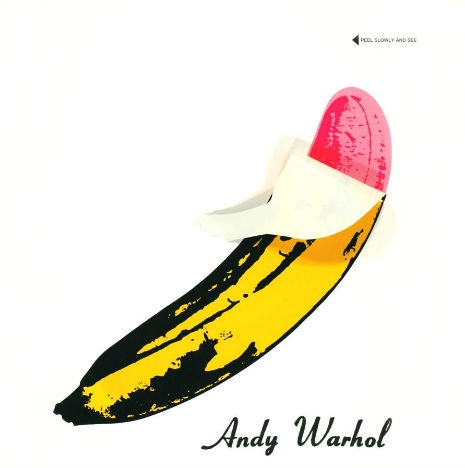
Lou Reed and John Cale (but mostly Lou) get the lion’s share of the love when it comes to assessing the brilliance of that visionary American proto-punk band of the late ‘60s The Velvet Underground, but that group’s magic was a four-way synergy. Yes, Reed’s songs were ahead of their time, and yes, Cale’s avant-garde bona fides gave the band’s music shapes and timbres that were previously unknown in rock, but imagine how those songs would feel without Sterling Morrison’s slippery guitar stylings and the distinctive drumming of Maureen “Moe” Tucker.
The last thing, you don’t actually have to imagine—the band’s final album Loaded (please spare us any nerd-rage about Squeeze, nobody thinks that counts) was, contrary to what the credits read, recorded without Tucker, who was pregnant at the time of its recording. The difference is stark. Gone is the foreboding and moody thrum of Tucker’s cymbal-less mallet attack, replaced by standard 4/4 rock beats that a kid could play. And in fact, a kid DID play them—V.U. bassist Doug Yule recruited his teenaged brother Billy to fill in. It’s an irony that since Loaded was the only Velvets studio record never to go out of print it ended up being the album from which any given ’80s band that “sounded like the Velvet Underground” was most likely to have taken notes, though partly because of Tucker’s absence, it was the Velvet Underground album that sounded the least like the Velvet Underground.
Of the many songs Tucker did play on, “Heroin” from the band’s debut The Velvet Underground and Nico remains one of her most jaw-dropping moments. Starting with a caveman-ishly simplistic pulse, she ramps up the speed and the tension until the band eschews time-keeping altogether to swell into chaos, her tom-tom gallop coming just as unglued as the rest of the song, often dropping out completely, allowing the guitars to fly away. It was a breathtaking rebuke of all that was normal in rock ’n’ roll.
And Tucker went on record saying it sucked.

What Goes On was the official print organ of the Velvet Underground Appreciation Society. Founded in the mid ‘70s, the Society was pretty much the best way for a curious mutant to find out about the band in any kind of depth during those wilderness years of the ‘70s and ‘80s when much of its music was out of print. The Society curated an incredible series of bootleg cassettes called the “Afterhours Tapes,” which included the essential “Searchin’ for my Mainline,” a substantial historical survey of the band boasting plenty of rarities with high-quality sound. What Goes On was sporadically published—years went by between issues, and so it was that issue #4 came out in 1990, a decade and a half into the Society’s existence, and five years after issue #3. The featured article was a lengthy interview by Boston musician and Society co-founder Phil Milstein with Moe Tucker, in which she offered her take about the canonical recording of “Heroin”:
I was pleased because it was really exciting to have a record out. I was just so excited to have a record in the store, that I could go up the street to my local Levittown store and find my record. I was thrilled! I was not very excited about the production. Back then, it didn’t bother me as much as it does now, but the boys, they were, for some zany reason. I don’t know, maybe they thought, “Well, this is the best we can do with the time given, so we’ll take it,” but I hate it. “Heroin” is a mess. We had done the album in eight hours in the studio, and the producer was…Andy (laughter). So we didn’t know what the hell we were doing, and he certainly didn’t, as you can hear from the record. And then when MGM bought it, and agreed to put it out, they gave us three hours in California in the studio to fix it, to fix ten songs. And you can’t do anything in three hours. We did “Heroin” over, and, I’m pretty sure, “Waiting for the Man,” and maybe two others, which I don’t remember now. But so quickly, and with no time to say, “Well, let’s do this” or “Let’s do that.” We just didn’t have the time. “Heroin” drives me nuts. That’s such a good song, I remember getting chills whenever we played it, and to listen to it on the album, it’s really depressing. Especially to think of someone who listens to that, and never heard us play live. And they think that that’s “Heroin,” and they say, “What’s the big deal?” It’s a pile of garbage on the record. Because on that one, the guys plugged straight into the board. They didn’t have their amps up loud in the studio, so of course I couldn’t hear anything. Anything. And when we got to the part where you speed up, you gotta speed up together, or it’s not really right. And it just became this mountain of drum noise in front of me. I couldn’t hear shit. I couldn’t see Lou, to watch his mouth to see where he was in the song. And I just stopped. I was saying, “This is no good, this isn’t gonna work, we need phones or something.” SO I stopped, and being a little wacky, they just kept going, and that’s the one we took (laughter). And it’s infuriating, because you’ve seen us live, that’s a bitch, that song. I consider that our greatest triumph. Lou’s greatest triumph too, maybe, songwriting-wise.
Continues after the jump...









